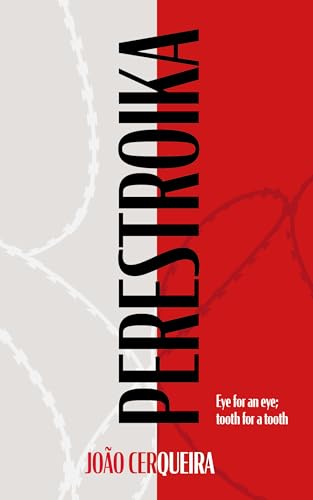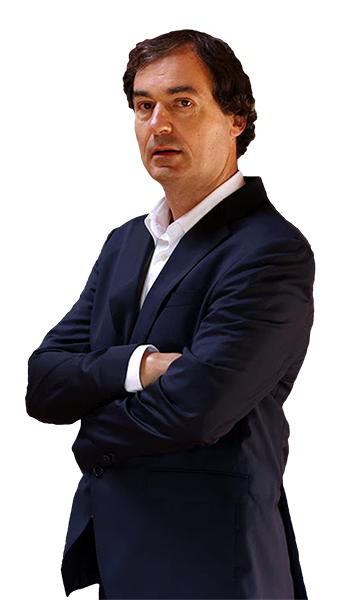Perestroika, by Joao Cerqueira
20 Jan 2024The Book

Synopsis:
Perestroika is a historical fiction novel that provides thrilling insightsinto the late Communist era. The book opens in 1978 and introduces citizens of Slavia like artist Ludwig Kirchner, struggling to survive in concentration camps, whilst the terrifying elites of the regime live in luxury and moral depravity. It all changes in 1989, with Perestroika. In the revolutionary turmoil, former crime boss Ivan Fiorov leads the newly formed 'Freedom Party', heralding a wave of insecurity that resembles the previous dictatorship.
Revenge, redemption and catharsis collide head on with recent European history. With Putin's invasion of Ukraine, alongside a resurgence of populist leaders and neo-Nazi movements across the world, Perestroika is as much a lens into the present as an exciting epitome for the past.
My Review
Perestroika is a historical fiction novel, an ambitious book written by Joao Cerqueira that takes us to the fictional country of Slavia, a communist regimen that is caught under the winds of change the rest of Europe is experimenting. With a brutalist prose, rich in visual description, Cerqueira weaves a choral play that uses really different characters to tell us the story of Slavia and the change of regimen: from communism to a "democracy".
The first half of the novel depicts the year 1978, introducing us to Slavia and the communist regimen directed by Alfred Ionescu; a regimen that oppresses and persecutes the normal citizens, while the elites get enriched because of the corrupt nature of the system. In this situation, Cerqueira introduces us to those citizens that are struggling under the system, even being sent to concentration camps, such as Ludwig Kirchner; at the same, even if the elites are benefitting from this system, the author manages to give them a layer of humanity, nuances that separate them from the prototypical villain image. In the style of literary fiction, and using the POVs of characters at each level of the ladder, Cerqueira creates a really complete picture of everything in Slavia.
The second half is set eleven years later, 1989, after Perestroika is promulgated by Gorbachov; Slavia is not indifferent to the change. Ionescu's regimen has fallen, but the establishment of a new power will prove to be more complicated than it seemed. Ivan Fiorov, Koba, a gang boss, is the new leader of the "Freedom Party" and has intentions of using the democracy to reach the power, establishing in the process a government that resembles in many aspects to former regimen; Cerqueira mimics how the fall of many dictatorships was followed by the establishment of democracies that ended just being usurped by the oligarchs. What started as a wave of hope for Slavia ended being just simply a change of those in power.
Characters are an important part of what makes Perestroika shine, the actors in this collective play that tell us the history of Slavia. From really different origins, all of them will be witnesses and part of the change; they have their own interests and worries, showing their humanity even in the vilest of them. Ivan Fiorov is probably the most remarkable one, that gang boss that understands how to navigate the waters in both situations; and if I can say that, the capitalist guy who gets benefit from the sourest of moments.
Using Slavia as a setting allows Cerqueira to take some creative freedoms, blending together historical moments from other countries; however, despite the imaginary nature of it, the author manages to give it a huge amount of credibility, being extremely accurate to the images we had from that time.
Perestroika is a tour de force of historical fiction, an excellent novel that if you like the genre, you will absolutely love; a character driven story which ambitiously describes the evolution from Ionescu's regimen to the "democracy".
The Author/s

Joao Cerqueira
João Cerqueira was born and lives in Viana do Castelo, Portugal. He holds a PhD in Art History from the University of Porto, he is a professor at ESE and a columnist for the newspaper Sun.
He is the author of nine books and is published in eight countries. His novels use satire and humor to address human nature and contemporary problems. He tries to continue the literary tradition that goes from “Cantigas de Escárnio and Maldizer” to Eça de Queiroz and Camilo, without forgetting Gil Vicente, Camões and Bocage.
